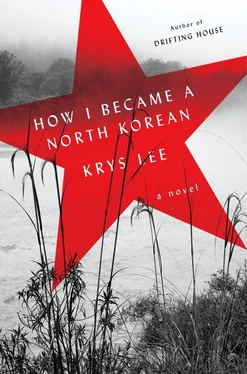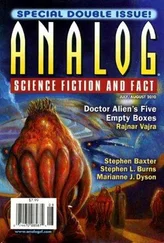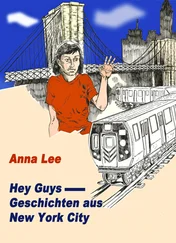“Do something!” Daehan screamed at me, assuming it was the work of the others. He hurled himself at my back; I shook him off.
He said, “You’re sabotaging yourself! I’m getting you help, I promise!” It sounded like another futile Christian promise.
“Watch this.” Namil checked to see if we were watching, then grabbed the scissors from me and slashed the window’s covering, which was sticky with the cicadas, and wrapped it around Missionary Kwon’s head.
The missionary shook his head wildly, trying to shake off the plastic. “It doesn’t get better — your lives will feel like a dream and no one will ever understand you again once you cross. But I understand. God understands. You North Koreans are always so ungrateful.”
The legs of his chair lifted and thudded against the floor as he struggled. The boys looked at one another for what to do next.
I withdrew one of the cell phones from Missionary Kwon’s jacket pocket and scrolled through the list of names. “Which one leads us to a broker?”
The missionary sat up straight in the chair and his arms went limp in their binding. He took a deep breath, and panic and anger eased from his face until his glacial gaze went right through me.
“You think I care about this body, this mere shell?” he said. “You think that God is so weak, for you to threaten me?”
“All you have to do is get us out of here. You drove us to this.”
“I saved you, all of you. Without me, you’re nothing. Less than vermin.”
Cheolmin spat on the floor near the missionary’s feet. “What did you say?”
The missionary didn’t stop there. He compared us to germs and parasites. Black spots danced in front of my eyes.
“If I made a phone call tomorrow, you’d disappear. Another call, you cross the Thailand border. I’m the one who decides. Don’t you see?” His mouth twisted upward into a mournful smile. “Who’s going to know about you if I’m gone? Or care?”
My hands reached for the hard knob of his throat. The escaping air whistled from his pressurized pipe. No one, finally, was there for me. It wasn’t Missionary Kwon facing me anymore but the darkness pursuing us. People crowded my eyes, voices knocked against one another. I was pushed back, backward, across the river. They were back, it was back.
I was surrounded by men, by hunting dogs. The ice gleamed silver moonlight as we crossed. The riverbed cut into my feet, and the mantraps lining the river opened and closed their mouths. There were traps everywhere, and mouths, and eyes. The eyes and mouths moved across us. I was there, we were there. I struck out at the Dear Leader, the red leather jacket, at the hands that pulled me down. Water surrounded us. We were drowning together.
Then I was dragged back from drowning. I gagged. The kitchen scissors were in Jangmi’s hands and my hands were around hers. Our hands were dark and wet and smelled of fresh liver. Voices erupted. The missionary was on the floor and the boys were kicking him. The blood trickling from the missionary’s eye glowed in the lantern’s light. His gurgled screams filled the air; his shirt was a river of blood. That severed voice, those tattered ribbons of sound, were the only sounds he managed. As if his tongue was mourning his eye. I stared at his bruised arms and chest, his punctured eye socket. At my hands. They had held but not stopped Jangmi.
Daehan walked backward, leaving pale red tracks on the cement floor. He held his stomach. “I want to go home,” he whispered.
“ Meojori! ” Cheolmin looked impressed. “A woman did that?”
“Let him bleed to death.” Bakjun’s voice was small and unconvinced.
Namil gnawed at his fingernail, staring down at the missionary.
Gwangsu began to pray.
“Did I do that?” Jangmi’s pupils were dilated.
From somewhere distant I heard Daehan say, “He needs help. He has a son.” He wiped the blood from Missionary Kwon’s face with the edge of his shirt. “Where’s his phone? I’ll call that doctor.”
“You’ll get us sent back!” Cheolmin punched Daehan in the stomach. “You’re not calling anyone.”
Jangmi clutched the bloody kitchen scissors to her shirt, shivering. Her hand ripped at her hair as if she were trying to wake herself up with pain.
Now we would never leave, I thought. “We need to call someone, anyone. We need to get out.”
“Help is coming.” Daehan made a sound between a sniffle and a moan. “Help was already coming. Give me the phone.”
• • •
For forty-eight hours we waited in the thick of the missionary’s mortified flesh that only Daehan approached and fed, as flies buzzed and laid their eggs in the submarine heat. We simmered in our fear until at the designated time we crossed the small stone bridge that led to a muddy country road, took several turns as instructed, and eventually, behind an abandoned village school, we met the brokers that Daehan’s eomeoni had hired. I didn’t know who Daehan was. It didn’t matter anymore.
This is how it happened. We fled in the brokers’ footsteps. We scattered into small dark spaces in the backs of buildings, trains, and buses, through the great mouth of China. Our feet made fresh tracks as we weaved through mountains and made unreliable allies of the moon and the night and the stars. Every shadow a soldier, a border guard, an opportunist. Each body of water reminded us of the first river, the river of dreams and death, where we saw the faces of people we knew and would never know frozen beneath it. The children who had run and been caught and sent back. The pregnant women repatriated to our country and thrown in jail, forced to run a hundred laps until they aborted. The women who gave birth in the same jail and saw soldiers bash their new infants against a wall to save bullets. The countless others whose peaceful lives ended when an enemy informed on them — ours was one small story in all the other stories. We stumbled across the jungles and deserts of Southeast Asia, seeking safety and freedom. We would look and look. A few of us would find it.
Maps are borders that keep people in and others out. My brand-new U.S. passport, which the immigration officer stamps for me at the Yanji airport, a modern surveillance tool. I made it past twenty and am several inches taller than my parents now; I’m half a semester away from a degree in sociology at Harvard, and only occasionally lapse back into supersonic leaps of speech. There are other changes, too. For example, it only takes me a few minutes in China to discover that my Chinese isn’t what it used to be. In any case, after my digital fingerprints and photograph are taken for the first time, I step through the arrivals gate and into an old map, the topography of my past.
I look for my mom in the crowd of anxious faces. The airport echoes with the singsong seesaw of our Joseon language, which is so different from the rat-tat-tat of American English. I’m tired out from the flight, and the fluorescent blue chairs seem to beckon. The deacon spots me before I can dodge him and migrates through the curtain of noisy reunions, then stretches his hand my way as if we are in America. Next thing I know, he’ll try to act like a father to me.
“You’re all grown up, Daehan.” He seems determined not to acknowledge our most recent encounter, when I found him six years ago curled up boomerang-style in my mom’s wardrobe. “We’re so glad you finally came.”
I stay civil but I don’t smile. That would feel like a betrayal of my dad, though from the way my old man reacted to the divorce, you would think that nothing has changed. He’s still devoted to his timepieces, still plays baduk weekly with the same two friends. Worst of all, he still lives alone, with only me to call him once a week to make sure he isn’t surviving solely on microwave meals. The only times I know he is affected are when by necessity my mom’s name comes up on my visits home and his eyes mist over as he polishes his spectacles.
Читать дальше












